
Columnists
Paris
French farmers' protests continue in Paris
Johanna Fränden
Updated 23.09 | Published 22.33
RUNGIS. Two weeks have passed with many farmers sleeping in their tractors on the highway.
On Thursday afternoon, they receive a promise from the French government and some decide to end the blockade of the entrance to Paris.
- But we will not hesitate to take up the fight again if the promises are not fulfilled, says Arnaud Rousseau, chairman of the French farmers' union FNSEA.
When Karine Duc, 38, gets out of the car in a parking lot outside a shopping center in Rungis, a few kilometers south of Paris, she is greeted by applause. About thirty farmers have been waiting for their colleague and union representative overnight. Karine Duc has spent it in custody.
Rungis is the site of one of France's largest raw material wholesalers, here large parts of the Paris restaurant industry buy their products at wholesale prices. Too cheap, say French farmers, of which barely a hundred made their way into the giant supermarket yesterday. 79 of them were arrested by the police, one of them was Karine.
- For me, it is natural that we who give birth to this country have the right to see where our goods end up. There was no damage at all, she tells Aftonbladet.
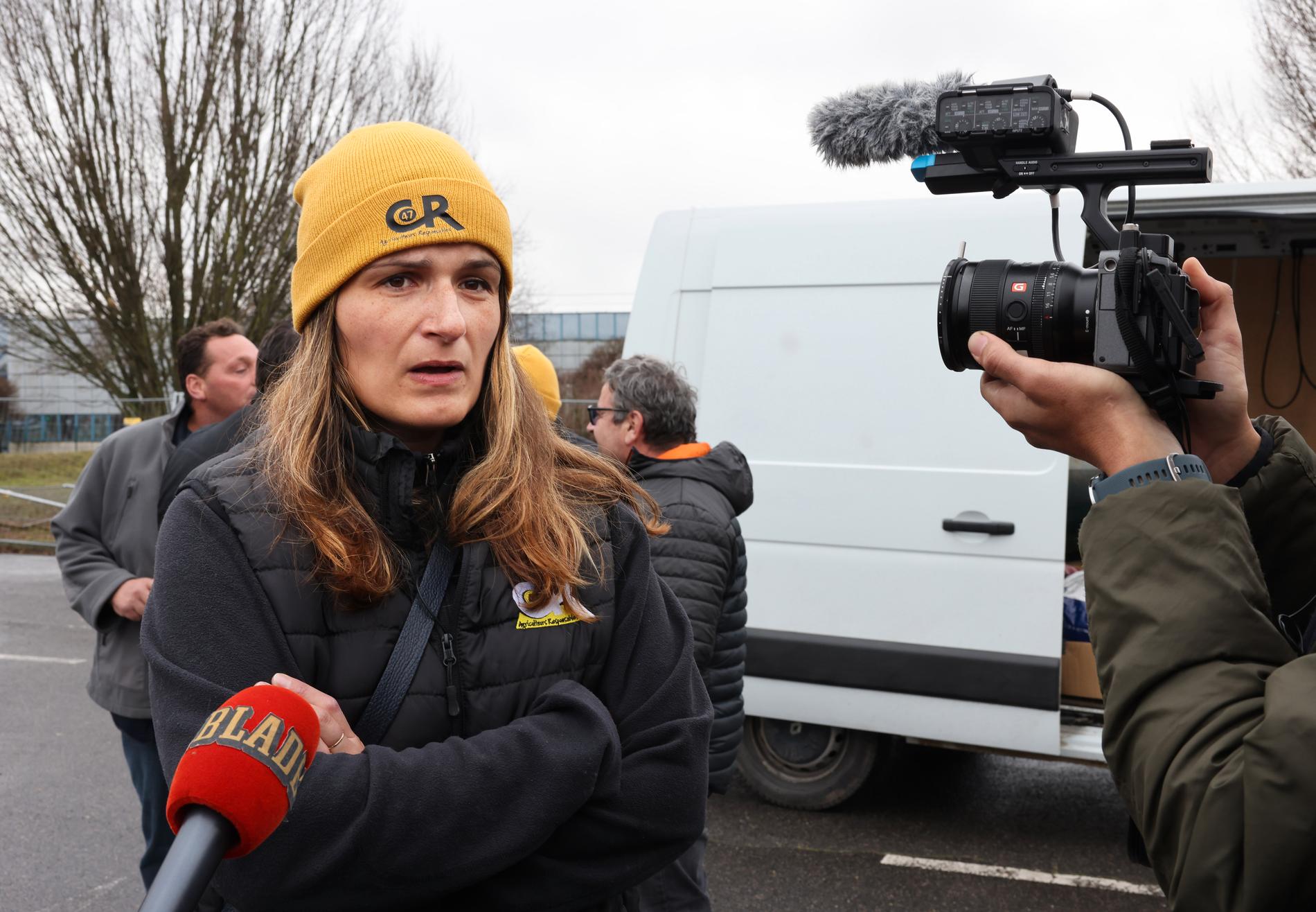
Activist and union representative Karine Duc. Photo: Photo Nikolai Jakobsen
She is a wine producer and representative of the trade union Coordination rurale 47, and one of the thousands of farmers who took to Paris this week to show their anger. The demonstrations have been going on for two weeks and the entrances to the capital have been blocked by tractors for over a week. On Thursday, several farmers' collectives entered the National Assembly in Paris to talk to elected members.
The day before, Karine Duc, together with other union representatives, met Prime Minister Gabriel Attal in Paris to explain the situation and press for reforms. Her message to colleagues on Thursday is bleak.
- We feel very let down, I don't have much hope unfortunately. This is the death of French agriculture. They haven't listened to us, they haven't heard us, "go home, get out of here and die in silence!".
Riot police block the highways into Paris. Photo: Photo Nikolai Jakobsen
Éric Maillochon is an organic farmer and grows a variety of crops on his farm in the commune of Bazelat in central France. He says that by all means the situation differs somewhat between different growers, but that the French farmers are in solidarity with each other.
- I am here in solidarity with my colleagues who were detained yesterday, we have come here to support them and strengthen the blockade and show the government that we are not giving up and that we want the action to continue as long as we have not received any concrete answers .
What could a concret answer be?
- A restart of the common agricultural policy is needed. Today we cannot continue in this system. All imports of foreign meat and other products must be reviewed at EU level so that we are not out-competed by products produced under completely different rules that are much less stringent. It doesn't work anymore.
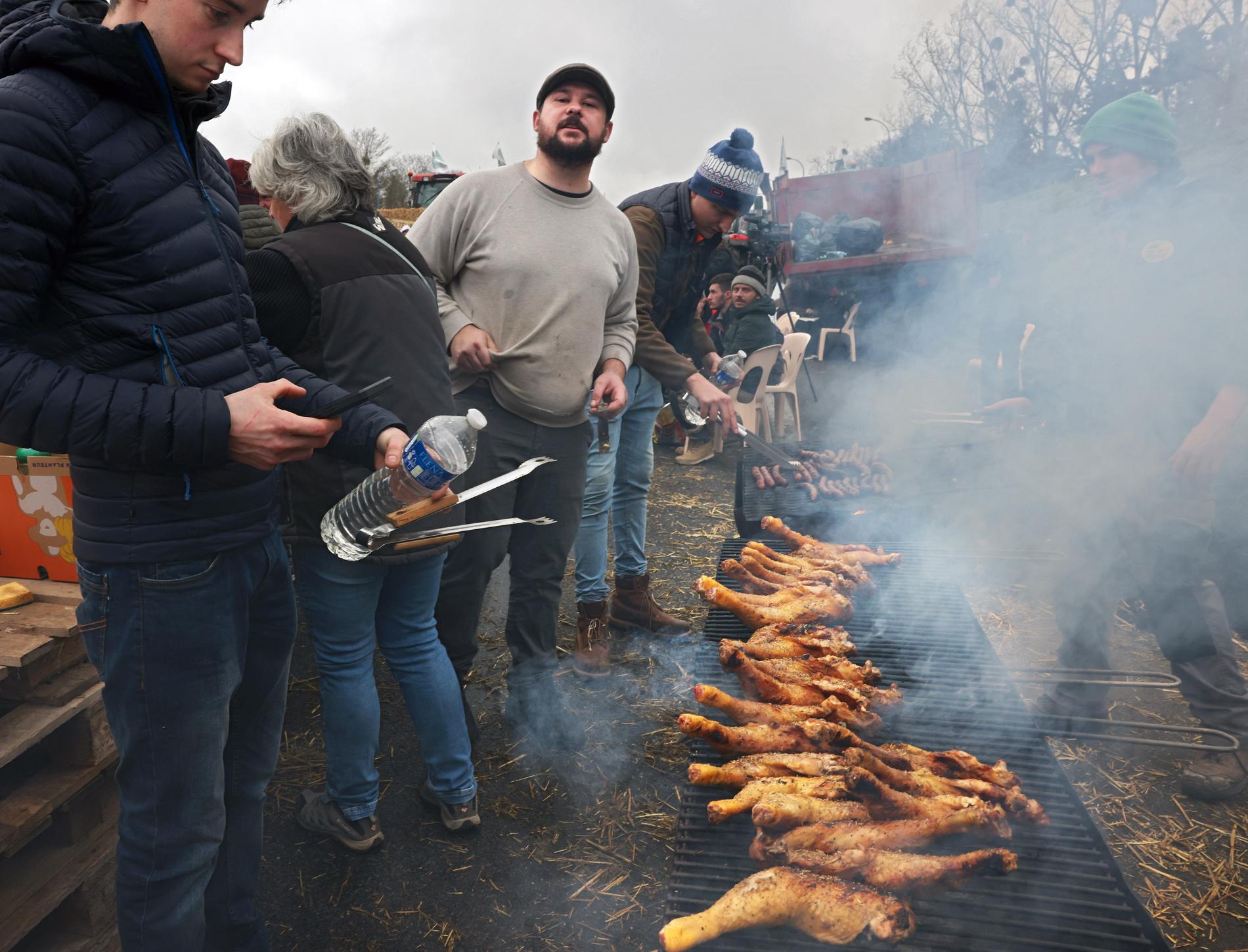
French Grilled Chicken on the blocked highway. Photo: Photo Nikolai Jakobsen
The peasant uprising in France and in almost all neighboring countries shines a light on several of the major political conflict lines of today. On the highway leading to Paris is the battle for free trade, the climate, self-sufficiency and national identity.
The French government has found itself with its back against the wall since the blockade started. Farmers have a special position in France, both in political practice where they receive the most agricultural support in the EU, and in the imagination of the common man. Agriculture is seen by many as the very symbol of the French national soul. Despite blocking all motorway entrances to Paris in recent days, and thus making everyday life more difficult for millions of people, the support is great. Up to 90 percent of the French support the peasant uprising, according to opinion polls.
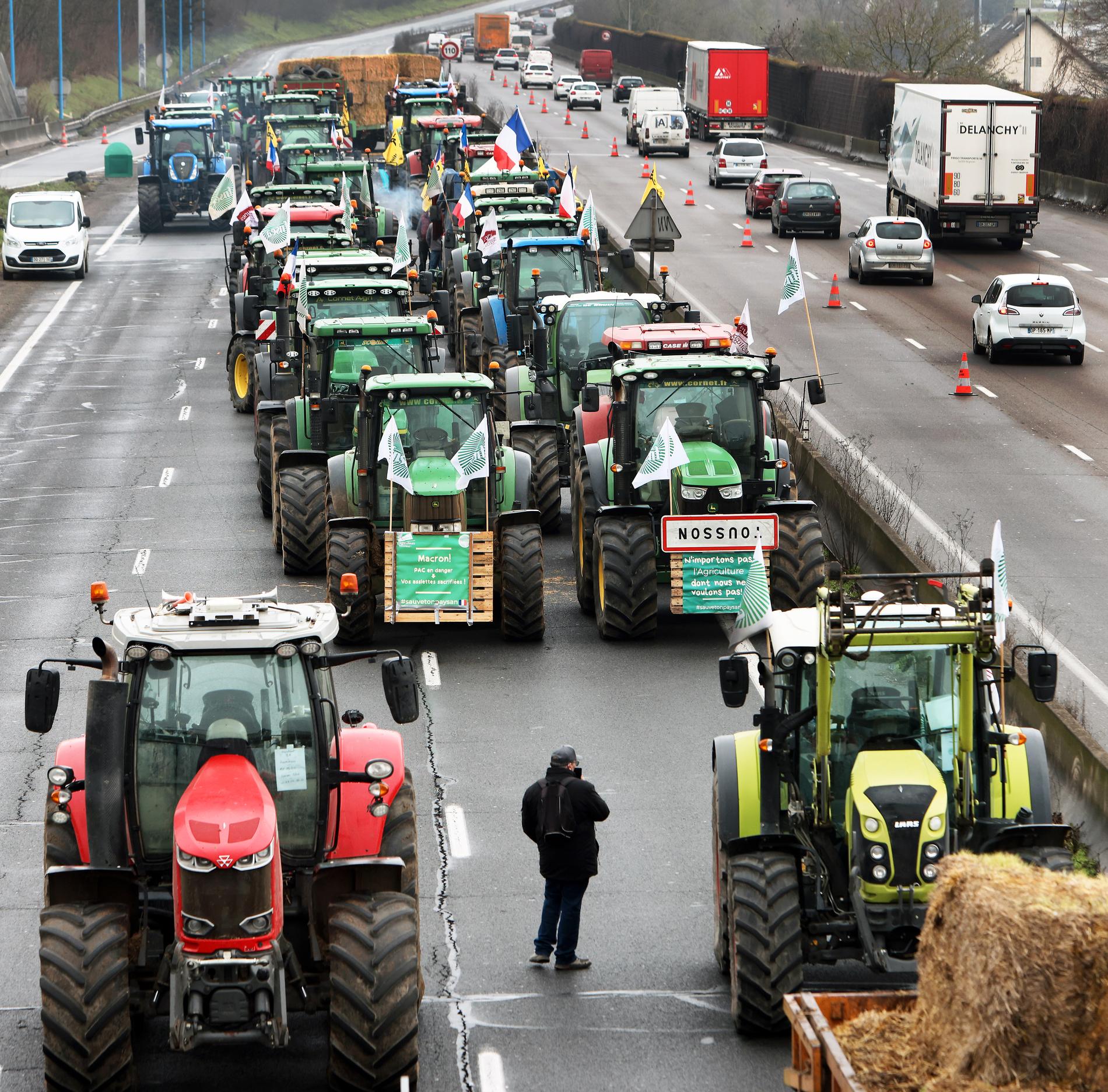
The A6 motorway from the south of France towards Paris is blocked by farmers. Photo: Photo Nikolai Jakobsen
On the highway at Chilly-Mazarin, 40 minutes south of Paris, several motorists honked their horns in support of the farmers as they drove past the blockade in the opposite direction. Here, around thirty tractors are lined up to stop traffic towards the capital and around a hundred farmers are waiting for the government's next move. French chicken ("not Ukrainian!") is grilled at a makeshift kitchen. The farmers are tired, but not given up.
The new Prime Minister Gabriel Attal has eased a number of laws and regulations in recent days to accommodate farmers. Among other things, the government has put an end to the tax increase on fuels used in agriculture, promised less bureaucracy in the paperwork for the country's farmers and tighter controls on the food chains that violate the laws that regulate the sale of domestic raw materials.
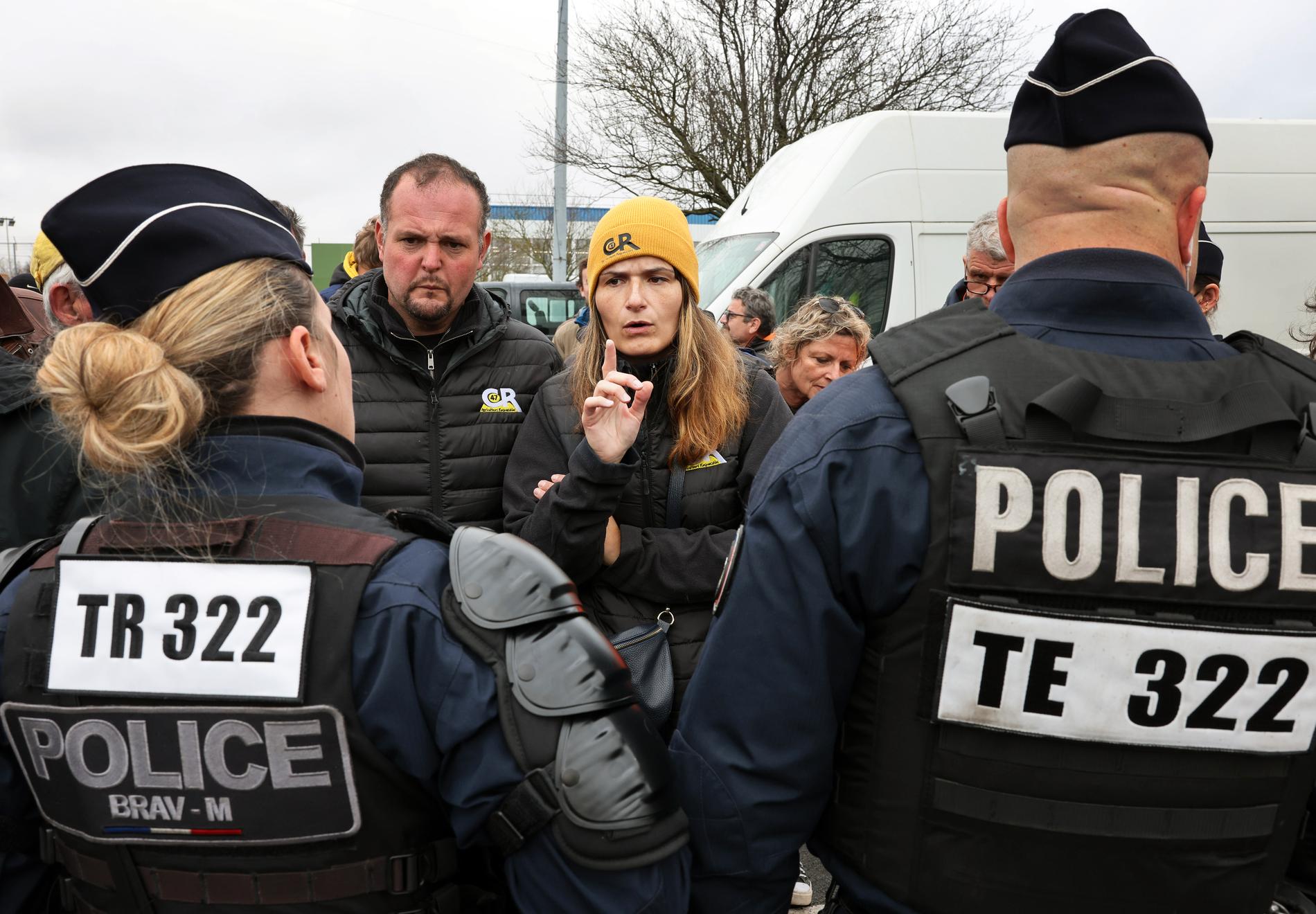
Activist Karine Duc argues with the riot police. Photo: Photo Nikolai Jakobsen
The argument in the farmers' collective is that raw materials are produced according to high European standards, both in terms of quality and sustainability, while at the same time being out-competed by products from less well-counted countries where the requirements for production are lower. To meet EU climate targets, French farmers must also protect biodiversity by setting some of their land fallow, a measure which farmers' unions say they cannot afford.
So how bad is everyday life for the French farmers? In fact, it is mainly the small farms and the winegrowers who do not have the most exclusive labels that have difficulty making ends meet. They make up a minority of the collective, but have gained prominence in the French media recently.
At lunchtime on Thursday, Gabriel Attal launches a series of new measures to quell the rebellion in the country, including earmarking 150 million new euros in tax breaks and grants to the country's farmers. The Prime Minister also promises that France will not sign the EU's new Mercosur free trade agreement with a number of countries in South America, whose products would compete with the French to an even greater degree.
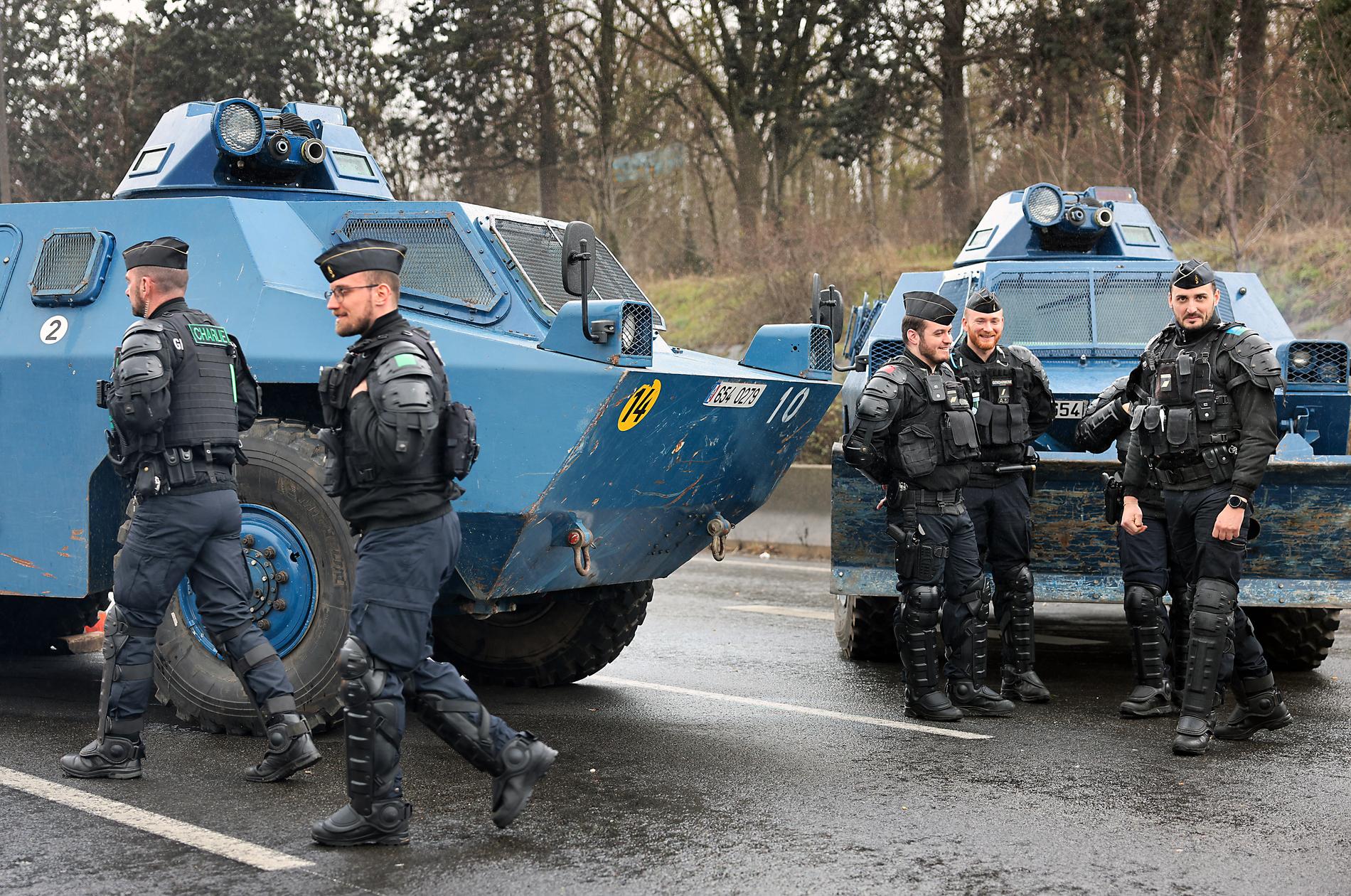
Riot police block the highways into Paris. Photo: Photo Nikolai Jakobsen
Emmanuel Macron is in Brussels today for the EU summit to vote through the new support for Ukraine. From the Elysée Palace, it has also been announced that the French president will meet with Commission President Ursula von der Leyen in person, in order to present the French agricultural demands on the EU.
The situation has raised a number of taboo subjects to the surface in France. In the right-wing populist TV channel CNews, a debate was held on Wednesday about whether France can really "afford" to remain in the EU with the union's climate goals and costly agricultural regulations.
In the afternoon, the various trade unions deliberate to take a position on Gabriel Attal's new measures. The organization Unga lantbrukare says that they have been listened to to some extent by the prime minister and calls for the road blockades to be lifted so that the mobilization "will enter a new phase". In Chilly-Mazarin, the blockade will continue until further notice.
Arnaud Rousseau, president of the trade union FNSEA, continues:
- What you have seen recently is the result of 20 years of agricultural policy, the situation will not be resolved overnight. In the next two weeks, we will see how the new promises are put into practice. We will not hesitate to take up the demonstrations again if they are not fulfilled.
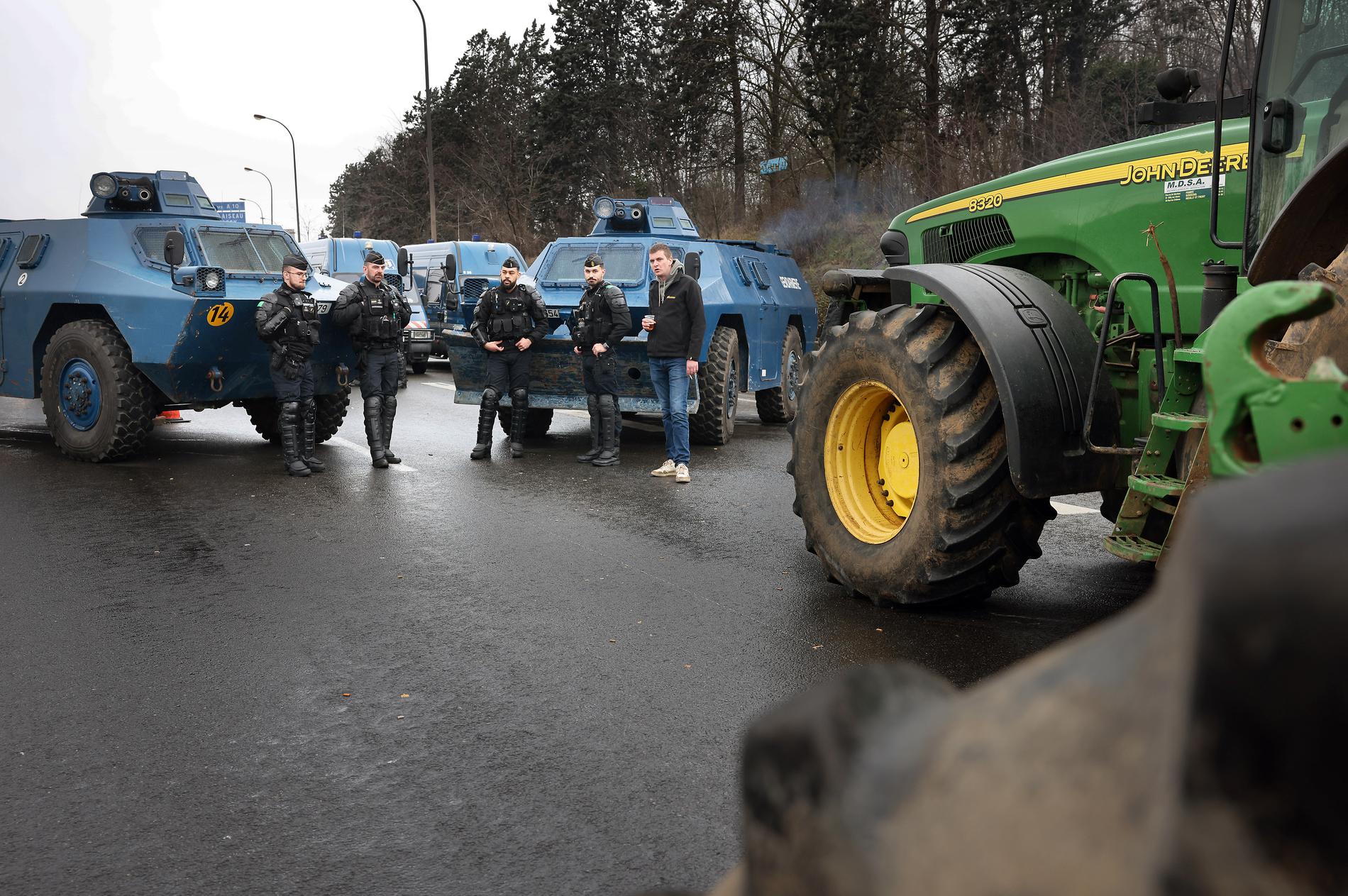
Inga kommentarer:
Skicka en kommentar